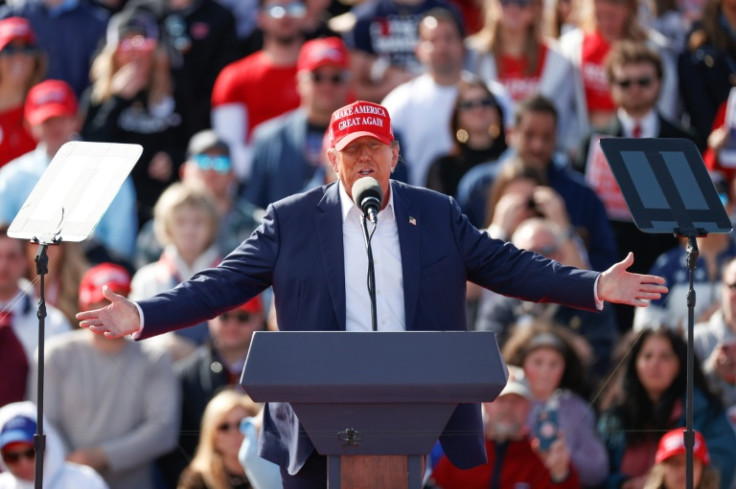
Former President Donald Trump hinted he is likely to go after his political opponents if he gets reelected in the November elections as retaliation for his current legal woes.
Speaking to friendly broadcaster Newsmax, he said the cases against him have ulterior political motives. "It's a terrible path they're leading us to, and it's very possible that it's going to have to happen to them," he said. "Does that mean the next president does it to them? That's really the question."
Trump's renewed discussion of the issue follows the verdict in the so-called hush money case against him, in which a jury last week found him guilty of 34 felony counts regarding him covering up payments to adult film star Stormy Daniels to prevent the story from harming his 2016 campaign.
In another passage of the interview, Trump complained about the jury in the case, saying he "never saw a glimmer of a smile," suggesting they were prejudiced against him and didn't give him a fair trial.
It's the latest episode of Trump's warnings about using the power of the presidency to go after political opponents if he wins the elections in November. He has famously said he would be a "dictator" on his first day in office.
The GOP candidate then said in another interview with Time magazine that he made the comment "in jest," but fears have grown within the electorate that he'll seek to never leave the White House if he clinches the election.
The David Binder Research group first noticed this fear when conducting a focus group on people who had voted for Biden in 2020 but considered switching to the other side in 2024.
"We were talking to Latino men and Asian American-Pacific Islander women in battleground states," said Seiji Carpenter, vice president of David Binder Research. "And they went straight to the issue of, what if Trump won't give up power?"
Republican strategists have been conveyed the same fear, Bloomberg reports. "It's showing up in our focus groups," said Sarah Longwell, CEO of Longwell Partners and publisher of the conservative website the Bulwark.
Perpetuating himself legally would be extremely difficult, as the 22nd Amendment, which limits presidents to two terms can only be changed with a two-thirds majority vote in the House and Senate or a constitutional convention called by two-thirds of the state legislature, after which any amendment would need to be ratified by three-quarters of the state.
Because of this, even Trump's most ardent supporters don't view this scenario as realistic. "It's 100% about trolling liberals," former White House Chief Strategist Steve Bannon says. "This would be our last free and fair election."
© 2025 Latin Times. All rights reserved. Do not reproduce without permission.





